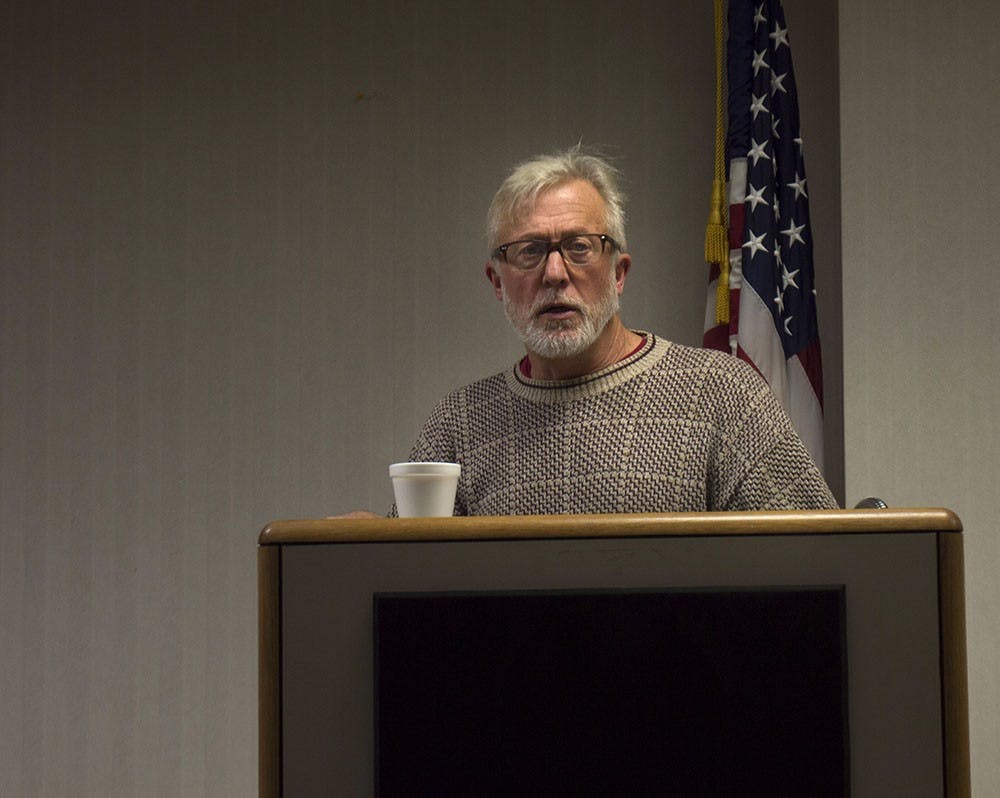The highway, which connects Indianapolis with the Canadian border north of Detroit, is currently being extended to connect Indianapolis with Evansville.
The I-69 project is considered part of a much larger goal of connecting the Canadian and Mexican border.
Citizens for Appropriate Rural Roads, a group founded to combat the environmental impacts of road construction, led the meeting. Thomas Tokarski, president of CARR, said he is calling for a halt to I-69 construction.
“Well, one of the things they could do is stop construction now,” Tokarski said. “Until they figure out the problems, why this ongoing pollution is continuing, and what we can do about it to prevent it from continuing to occur.”
The chief concern at the meeting was the environmental impact of the I-69 construction, particularly along the section 4 portion of the highway, which spans the southwestern portion of Monroe County.
Those at the meeting said they were not opposed to the construction of the highway, just its location.
“In the case of I-69, the decision was made to locate that highway on all new terrain in one of the most sensitive areas of Indiana,” said Tim Maloney, who is a senior policy director with the Hoosier Environmental Council.
Maloney said the damage included destruction to forests and caves and the addition of new sinkholes.
Brian Garvey said he has documented the environmental damage caused by I-69 firsthand.
Garvey, who lives in Stanford at the southwestern corner of Monroe County, said the I-69 construction is only a few hundred yards from his property.
Along the wall of the meeting room were photographs of perceived damage from I-69 construction. Photos showed streams and ponds filled with sentiment and faucets that run brown tap water.
Originally founded in 1990, CARR has criticized the I-69 construction plan from the beginning, Tokarski said.
During the meeting Tokarski called out what he perceived was a national epidemic in regulatory failure.
The Indiana Department of Transportation is responsible for overseeing all highways in the state.
The agency has produced an environmental impact ?report.
In the report, INDOT outlines the potential environmental impacts along the section 4 corridor and proposed solutions such as what the report called Best Management Practices.
According to the report, INDOT awarded Monroe County and the City of Elletsville $100,000, and Monroe County was awarded $50,000 in a second grant. The funds from INDOT are for any planning the communities needed to do in preparation for I-69.
But Maloney said I-69 problems will only grow worse as construction continues.
“There is going to be a big change from what is a fairly pastoral rural landscape with a lot of agriculture and timbering on private lands to a noisier landscape, a landscape that has more activity generated by the highway,” Maloney said.






